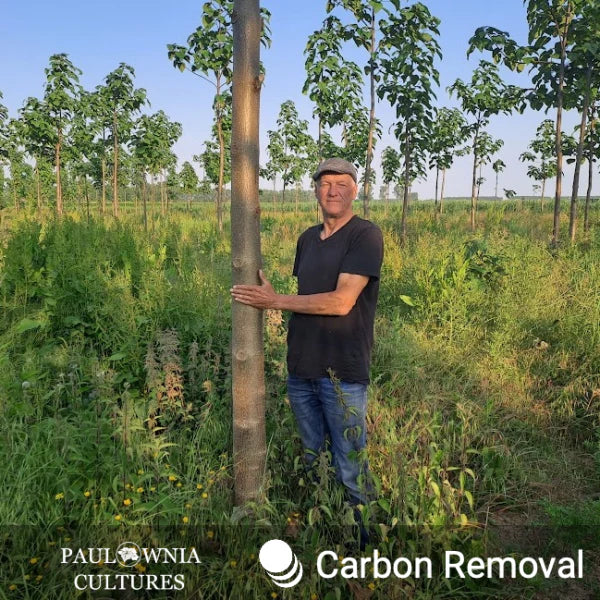Bamboologic Yoann: Carbon removal via European bamboo fields
Bamboologic Yoann: Carbon removal via European bamboo fields
992 in stock
Couldn't load pickup availability
Bamboo, known for its remarkable growth rate as the fastest growing grass, offers significant advantages. With its exceptional CO2 sequestration and oxygen production capabilities, bamboo stands out as an efficient tool to support net-zero emission goals and align with the objectives of the European Green Deal.
Aside from its carbon sequestration properties, bamboo offers numerous benefits as a plant resource. Bamboo efficiently absorbs nitrate from the soil, enhancing soil quality and fertility. Additionally, bamboo’s ability to retain water in the soil, helps prevent erosion and promotes soil regeneration. Another advantage of bamboo is its long-term sustainability, requiring only a one-time planting for a lifespan ranging from 60 to 100 years. Moreover, bamboo’s rapid regrowth after pruning or harvesting makes it an exceptionally renewable raw material to use as an alternative for fossil based materials, like concrete, steel, PVC and composite materials. The utilization of bamboo as a renewable resource aligns with both ecological and business interests, providing a solid foundation for environmentally conscious enterprises.
Since bamboo is year-round-green and lowers the soils temperature, it serves as a home to many other plants, mushrooms, insects and animals; creating a biodiverse agricultural ecosystem. Furthermore, bamboo is a water-efficient plant that retains a lot of water in its roots and the top layer of the soil.
About the Remover
Yoann has been living in Asia for the last 10 years where he has been surrounded by Bamboo in his daily life. In regards of farming production, he has found the ecological aspects of bamboo particularly interesting, also with regard to the great market potential for wood and food production. Yoann finds this to be a great opportunity to diversify our agricultural system and very well aligned with societal demands. Yoann is a pioneer in this new industry of bamboo in Europe, and finds this to be very exciting.
Bamboologic
Bamboologic installs bamboo farms in Europe and sells the raw bamboo or primary processed bamboo as a base material to produce sustainable & durable alternatives for hardwood, steel, PVC, composite materials & cotton. Europe is the largest market for bamboo products, with a huge demand for raw and semi processed bamboo. The only thing to do, is to plant as much bamboo as possible in order to meet the demand in a few years.
Website
www.bamboologic.eu
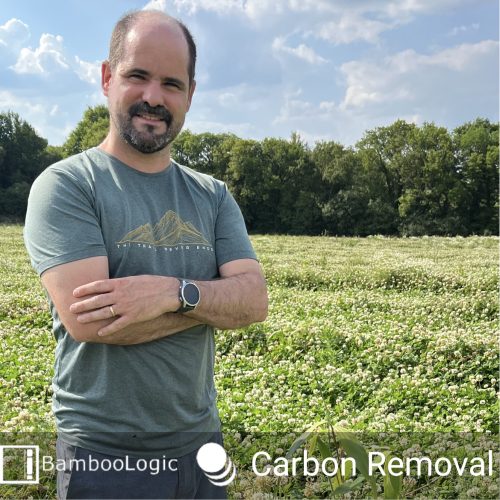
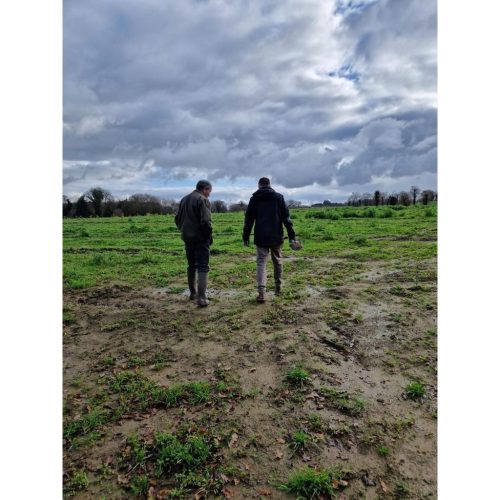
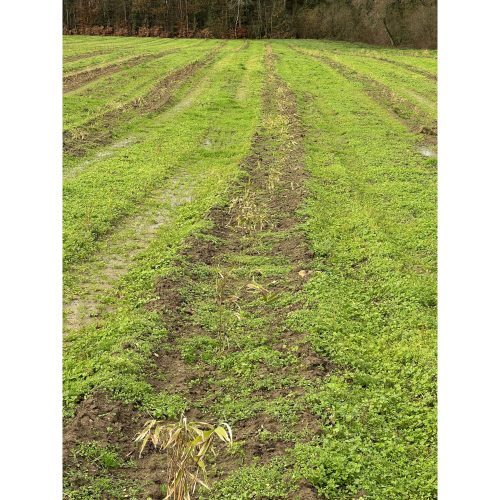
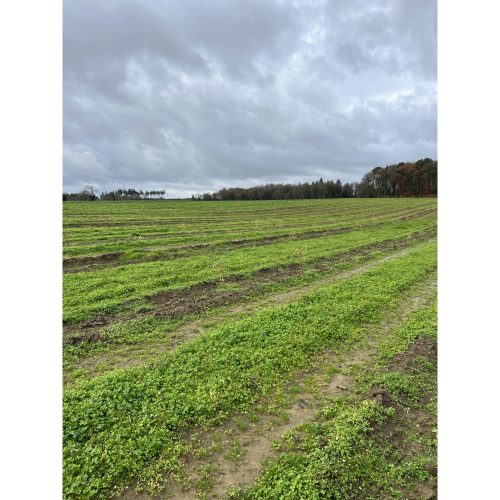
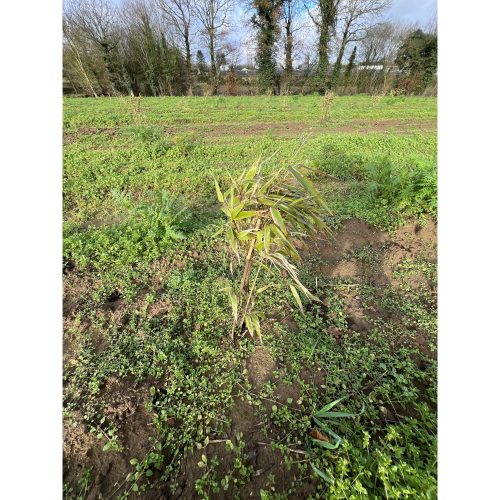
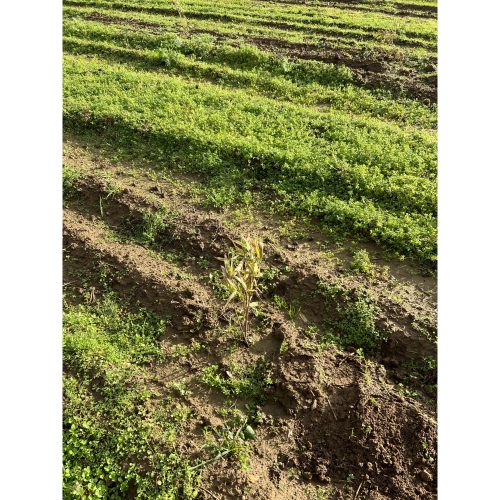
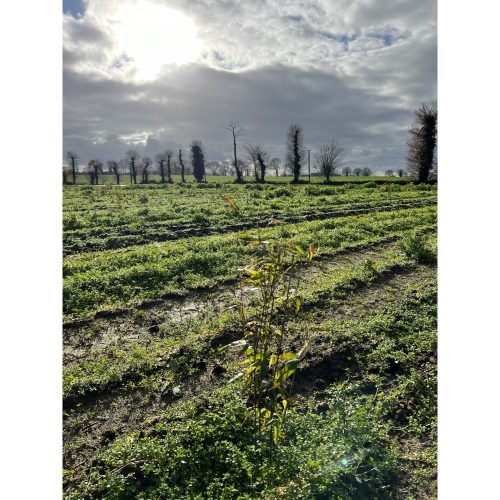
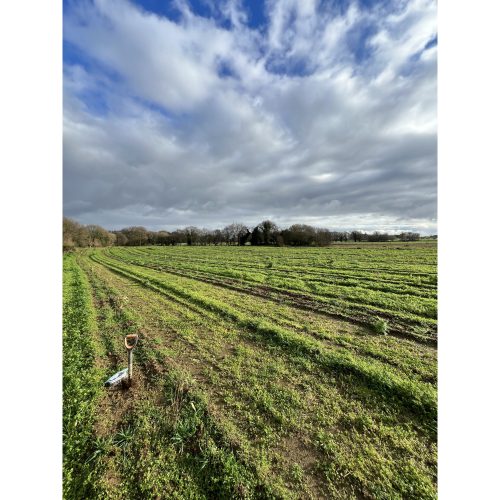
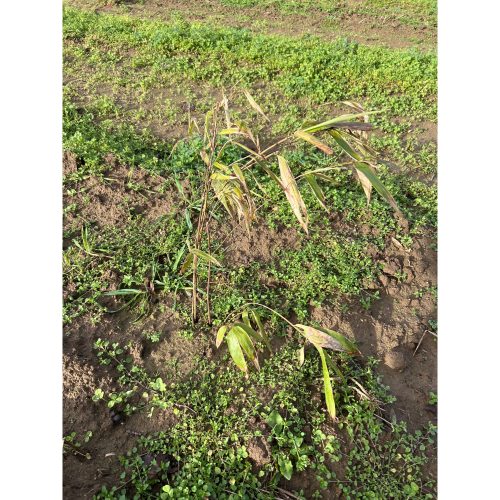
Certificates
-
CO2 removal
Amount of carbon removed:
1240 tCO2e
(= x1000 kg CO2 emitted)
-
-
Other information
Project goals
-
Objectives
-
Sustainable Development Goals
United Nations SDGs- 8: Decent work and economic growth
- 13: Climate action
Project Information
-
Project
Project Manager:
- Maurice Mulder
Status
- Certified
Planning
-
Google Maps
Ménéac, France
-
Sustainable Development Goals
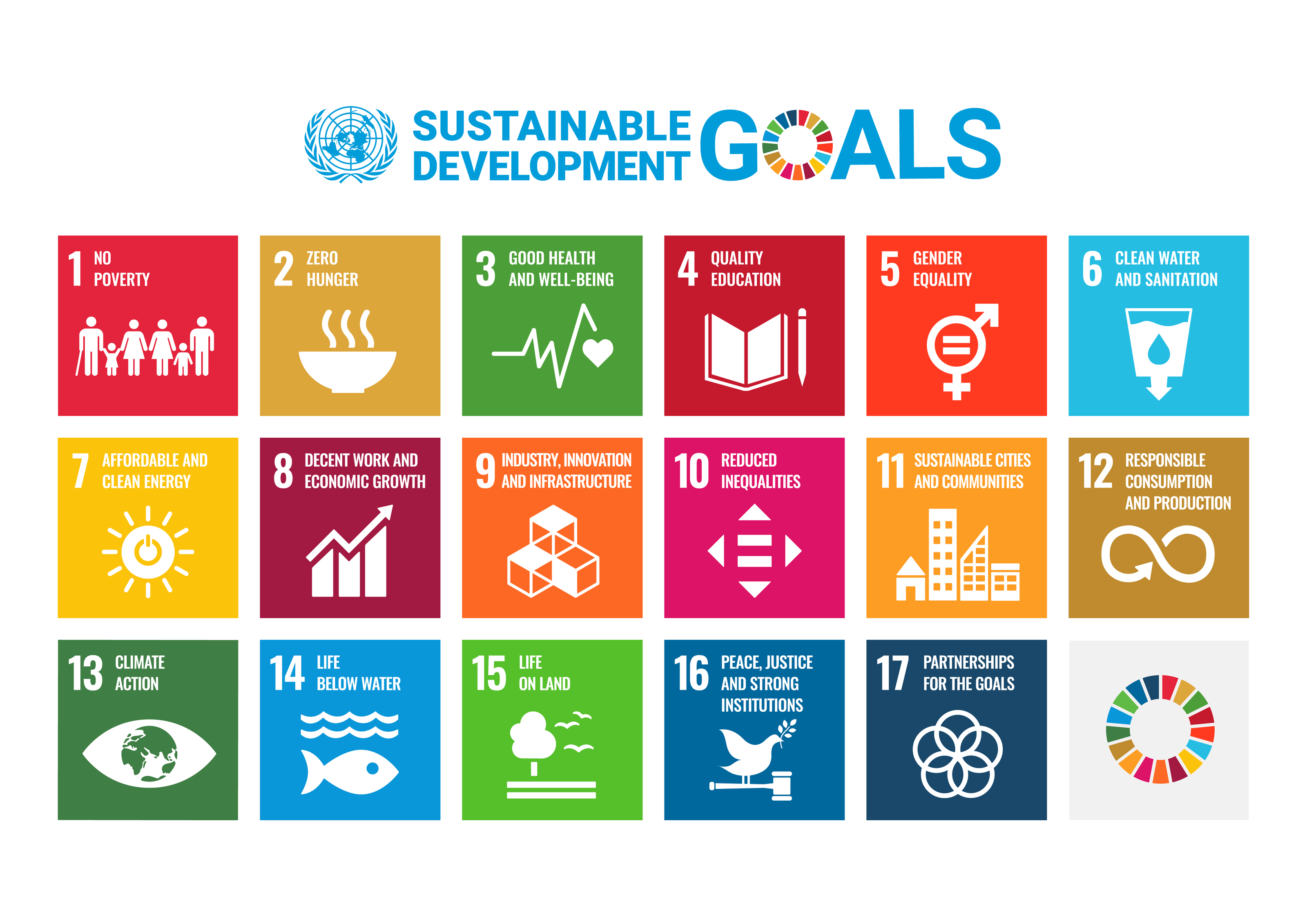
1: No poverty
There are many reasons, but in short, because as human beings, our well- being is linked to each other. Growing inequality is detrimental to economic growth and undermines social cohesion, increas- ing political and social tensions and, in some circumstances, driving instability and conflicts.
The private sector has a major role to play in determining whether the growth it creates is inclusive and contributes to poverty reduction. It can promote economic opportunities for the poor.
5: Gender equality
Regardless of where you live in, gender equality is a fundamental human right. Advancing gender equality is critical to all areas of a healthy society, from reducing poverty to promoting the health, education, protection and the well-being of girls and boys.
We fund education campaigns to curb cultural practices like female genital mutilation and change harmful laws that limit the rights of women and girls and prevent them from achieving their full potential.
8: Decent work and economic growth
Goal 8 is about promoting inclusive and sustainable economic growth, employment and decent work for all. Decent work means opportunities for everyone to get work that is productive and delivers a fair income, security in the workplace and social protection for families, better prospects for personal development and social integration. A continued lack of decent work opportunities, insufficient investments and under-consumption lead to an erosion of the basic social contract underlying democratic societies: that all must share in progress.
Providing youth the best opportunity to transition to a decent job calls for investing in education and training of the highest possible quality, providing youth with skills that match labour market demands, giving them access to social protection and basic services regardless of their contract type, as well as leveling the playing field so that all aspiring youth can attain productive employment regardless of their gender, income level or socio-economic background.
Governments can work to build dynamic, sustainable, innovative and people-centred economies, promoting youth employment and women’s economic empowerment, in particular, and decent work for all.
Implementing adequate health and safety measures and promoting supportive working environments are fundamental to protecting the safety of workers, especially relevant for health workers and those providing essential services.
13: Climate action
very person, in every country in every continent will be impacted in some shape or form by climate change. There is a climate cataclysm looming, and we are underprepared for what this could mean.
Businesses and investors need to ensure emissions are lowered, not just because it is the right thing to do, but because it makes economic and business sense as well.
15: Life on land
Goal 15 is about conserving life on land. It is to protect and restore terrestrial ecosystems, sustainably manage forests, combat desertification, and halt and reverse land degradation and stop biodiversity loss.
